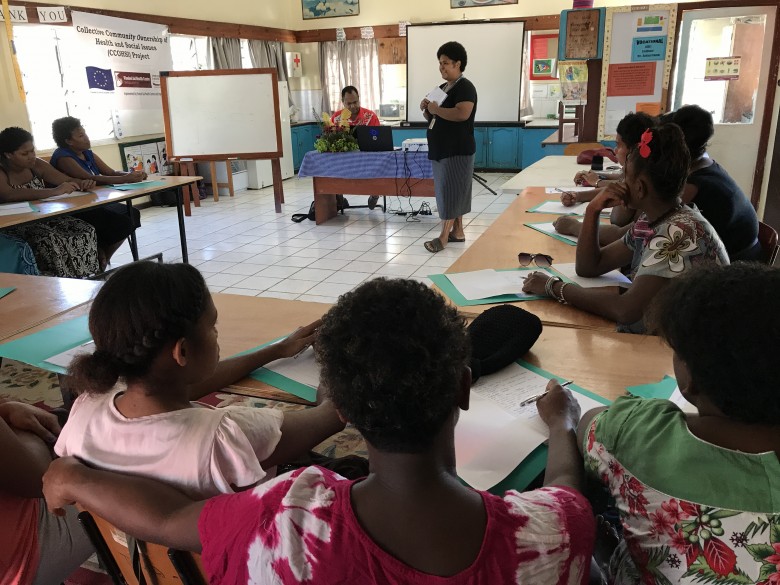Young Mothers Project – Nadi Series – Part 2 (July 20th 2017)
VSHC/CCOHSI Facilitators:
Coordinator:
-
Lauren Toll (Community Health Promotion Officer/AVI volunteer)
Facilitators:
-
Dr. Swaran Naidu (VSHC Medical Director)
-
Mosese Baseisei (Project Manager)
-
Seremaia Koroi (Health Promotion Officer)
-
Lauren Deakin (Public Health Communications Mentor/AVI volunteer)
Venue
The workshop was held at the Nadi Centre for Special Education
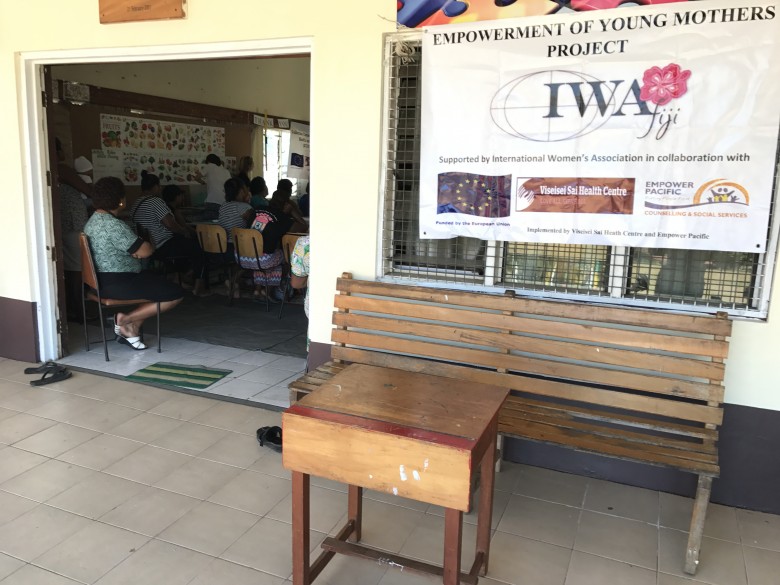
Presenting Stakeholders
Fijian Council of Social Services: Acalia Nauloaloa & Anare Lewanavanua
Department of Women: Anjani Nand
Department of Social Welfare: Litiana Tabucala
Ministry of Youth and Sports: Karunagarau Nair
National Employment Centre: Romika Singh & Sereana Dawai
Technical College of Fiji: Paulo Daurewa
Aims and Objectives
The aim of the second workshop is to provide the mothers with information from relevant stakeholders who can assist them with their education, career and social wellbeing. This provides the mothers with options and clear pathways they can take to improving their livelihood and achieving their goals. Findings of the needs assessments are also presented to the mothers and stakeholders to give a background of the participant demographics and specific areas of needs.
Attendees
Young Mothers: 20
Community Health Workers: 4
Speaker 1: Lauren Toll (VSHC)
Lauren presented the findings from 23 needs assessments conducted with the young mothers entering the program. This provided the mothers, as well as the stakeholders and VSHC, with an overview of the demographics, background and needs of the participants, and can provide direction for program delivery and information.
The findings revealed the average mother was aged 23 - 24 years, had one or two children, was unemployed, single, did not finish secondary school but was a good student, believes she can achieve her goals, and fell pregnant due to not using contraception. The majority of mothers want to develop skills in business and hospitality, and believe returning to school and starting a small business are the best options to increase their income. Lack of money is the major barrier to achieving their goals.
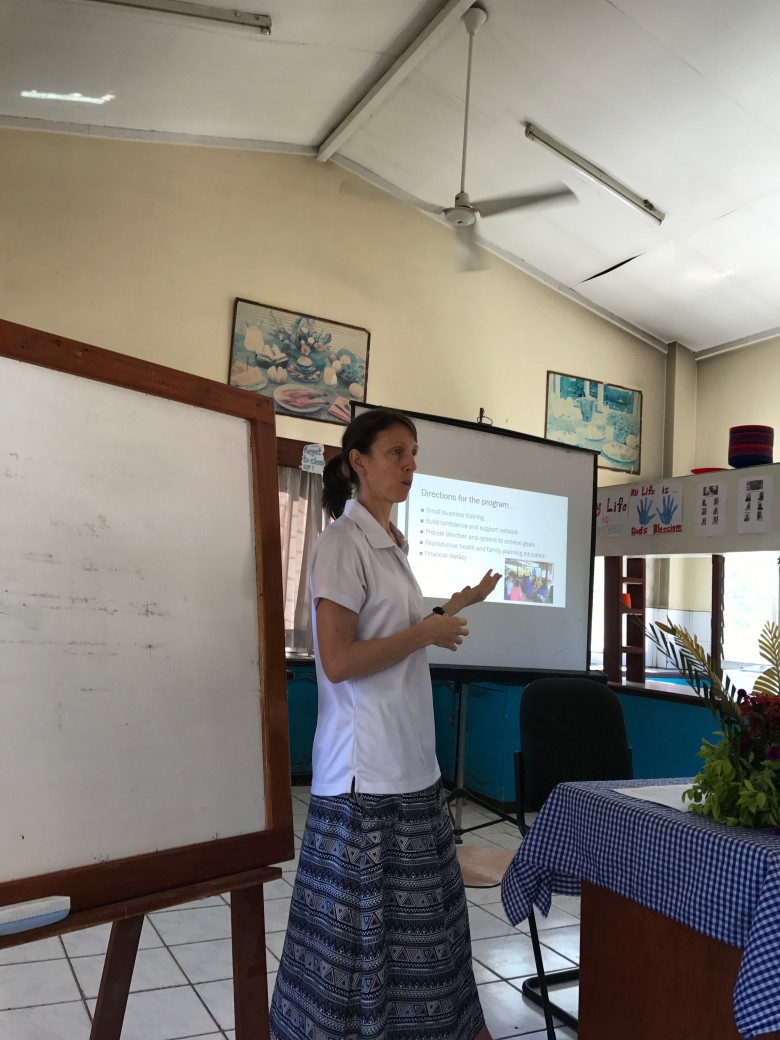
Lauren Toll presenting on needs assessment findings (VSHC).
Speaker 2: Acalia Nauloaloa (Fijian Council of Social Services) (FCOSS)
Acalia discussed the role of FCOSS, which focuses on small business and microfinance and has over 900 members. Acalia explained the requirements to open an account and described the FCOSS savings and loans programs. FCOSS also provide business skills and financial literacy training (F$25) with a certificate of completion that is recognised by FDB. Acalia highlighted that many single mothers and widows are FCOSS members and can save good money through the program, and the need for a focus and business plan when entering small business.
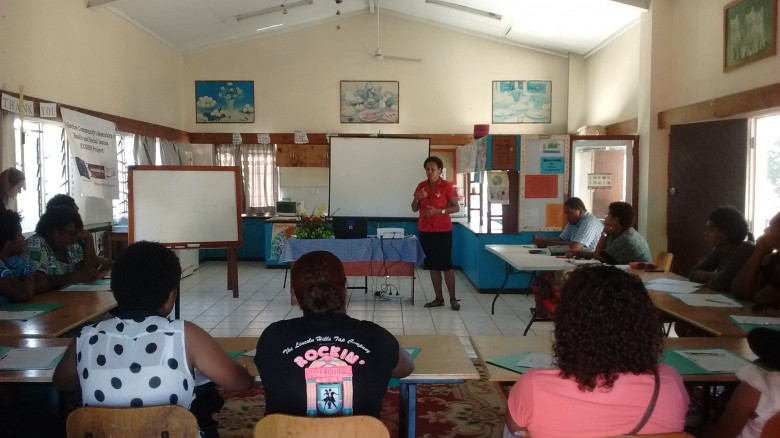
Acalia Nauloaloa (FCOSS).
Speaker 3: Mosese Baseisei (VSHC)
Mosese briefly spoke about the importance of registering children with Births, Deaths and Marriages due to the scheduled representative being unavailable. He highlighted the need for a birth certificate to acquire a bank account, TIN number, passport or marriage certificate.
Speaker 4: Litiana Tabucala (Department of Social Welfare)
Litiana explained the structure of the Ministry of Women, Children and Poverty Alleviation, which both the Department of Social Welfare and Department of Women fall under. These are governed by both international laws and local laws. Litiana explained the Care and Protection Assistance schemes available that may be of use to the mothers such as the Care and Protection payments which cater to single mothers, widows and guardians. Litiana then discussed adoption, and how the birth certificate changes to reflect the name of the adoptive parents which is important for consent for medical treatment and schooling. Other avenues of assistance such as Legal Aid (free government legal assistance) and care orders (Social Welfare have powers to remove children from unsafe homes) were also discussed before a morning tea break held outside.
Litiana Tabucala (Department of Social Welfare).
Speaker 5: Anjani Nand (Department of Women) (DoW)
DoW speaker Anjani Nand first explained their role in the five theme areas of the National Women’s Plan on Action:
-
Income Generation: Rural women’s income generation through projects
-
Equal participation: Women’s decision making and leadership training
-
Access to services: Ensuring available access to services such as reproductive and rural health
-
No violence: Elimination of violence towards women and children in conjunction with Fiji Police Department. Toll free number 1560 exists to report any domestic violence
-
Women and Law: Focuses on legal literacy training
Anjani then explained the process for registering a women’s group with DoW, which requires a minimum of five members to register as a group. Once registered, DoW can assist groups by funding education and trainings.
Speaker 6: Romika Singh (National Employment Centre) (NEC)
Romika explained several NEC schemes, which anyone aged over 15yrs can register for:
-
Formal employment: Permanent employment or work attachment
-
Fiji Volunteer Services: NEC will pay for six months, employer can continue to pay
-
Foreign Employment: Name must be nominated by village Turaga ni Koro or village head. Focus is on rural interior or outer islands, and passport is required.
-
Self employment: Currently not operational, but will be running soon
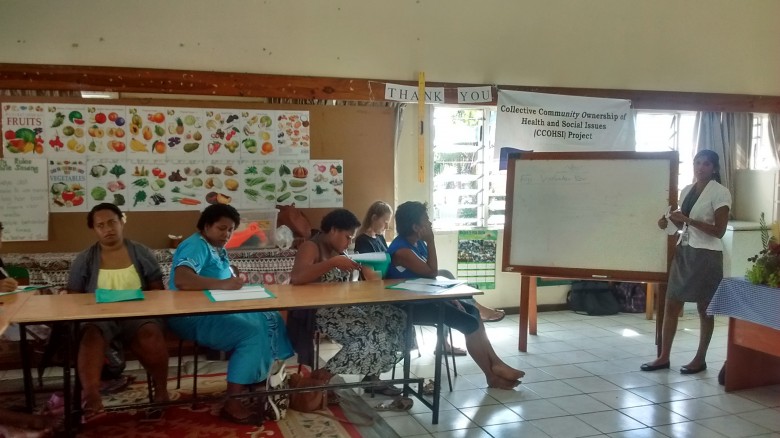
Romika Singh (NEC).
Speaker 7: Dr. Swaran Naidu and Seramaia Koroi (VSHC)
Due to a gap in the program the team decided to discuss reproductive health and family planning in an effort to reach the 14 participants who did not attend the first workshop. Topics covered included:
-
Contraceptive types, including benefits and correct uses
-
STIs
-
Cervical cancer
-
Pap smear
Although covering serious issues, the discussions remained fairly informal and open to questions in an effort to engage the young mothers who at times find discussing these topics difficult or embarrassing. Lunch was then held for all attendees, before the final two stakeholders presented in the afternoon.
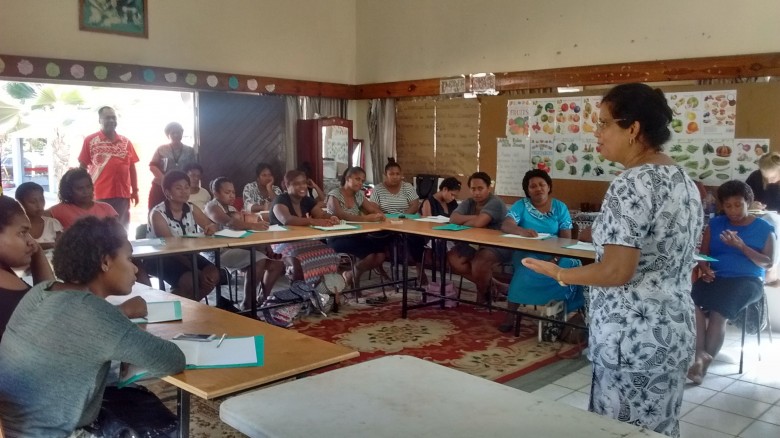
VSHC Medical Director Dr. Swaran Naidu discussing reproductive health with participants at second workshop, Nadi (July 2017).
Speaker 8: Paulo Daurewa (Technical College of Fiji) (TCF)
As many of the mothers indicated they wished to further their education, this was a very important presentation from Paulo who discussed available courses at TCF as well as the entry requirements for admission. TCF currently offer Certificate II courses, which are the only way to enter FNU for those who have not completed school. Students are eligible for Tertiary Education Loan Schemes (TELS). TCF also provide free, three week courses in baking, engineering and construction that run in the evenings and provide a Certificate of Attainment for subjects completed. This was received as a positive option for many of the mothers present. Paulo emphasised that TCF have a big focus on women in their trade subjects, and are here to help everyone.
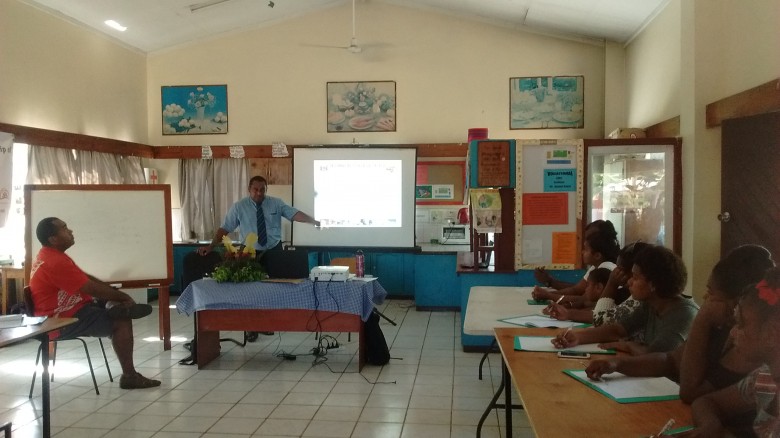
Paulo Daurewa (TCF).
Speaker 9: Karunagarau Nair (Ministry of Youth and Sports) (MoYS)
The last speaker for the day, Karunagarau Nair, spoke on various development programs run by the MoYS that could benefit the mothers, including.
-
Resilient futures: Offers youth development programs for those aged over 18 years, with courses similar to those run by TCF
-
Youth Club Registration: Require a minimum of ten members, a formal committee, and reports from at least three meetings. Groups are required to be formally running for at least six months before being eligible to apply for grants for sports equipment.
-
Empowerment programs: Ministry funds projects post program (‘seeds of success’)
-
Duke of Edinburgh: Based on service, skills, physical recreation, planning and adventurous journey
-
Multi-skills training: Arts and crafts, print screening, culinary skills
-
Mobile skills: Boat master, small engine repair, carpentry
-
Festival of Future: Send youth to New Zealand for the festival which is fully sponsored
Karunagarau offered to return to the third workshop to assist the mothers to set up a youth group, which several of the attendees expressed interest in doing so.
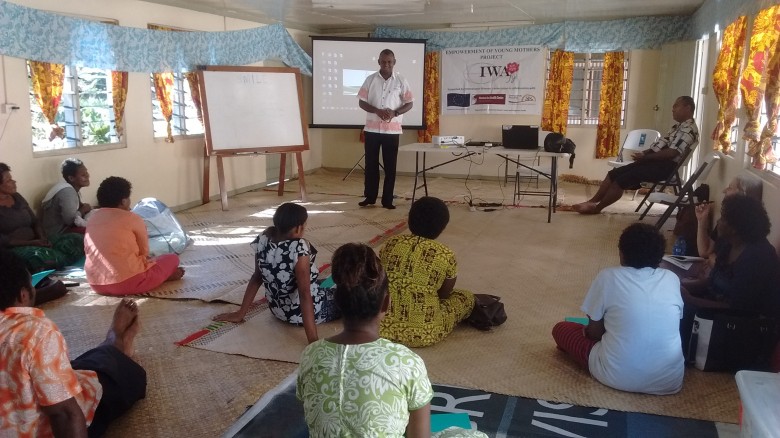
Karunagarau Nair (MoYS).
Evaluation
Overall the workshop received very positive feedback. There was a significant increase in attendance of young mothers to phase 2 when compared to phase 1 of the Nadi series. Participants indicated that the most useful things they learnt from the workshop were how government departments can assist young mothers, especially social welfare. The majority of participants also reported feeling increased empowerment, self-esteem and motivation as a result of attending the workshop. The mothers found the workshop very useful and interesting, though there was some decrease in the amount of mothers who found the information very easy to understand.
